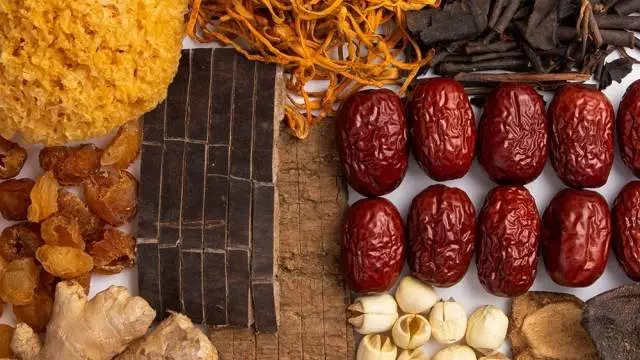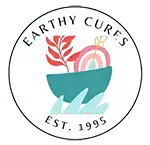

Traditional Chinese Medicine (TCM) takes an integrative approach to healthcare that seeks to treat the whole person. This involves looking at an individual’s history, constitution and environmental influences in order to identify any underlying health problems and provide appropriate treatments.
Treatment options may include acupuncture, herbs, nutrition, exercise and stress/emotional support as natural forms of medicine that complement modern treatments and are recommended by professionals.
Acupuncture
Acupuncture is an ancient Chinese medical practice that emphasizes the body’s natural healing abilities. A acupuncturist inserts extremely fine needles at specific points on the body in order to stimulate these energy points, and restore equilibrium.
Acupuncture has long been used as an effective treatment option for various health issues. People often seek acupuncture treatment for pain relief and stress reduction as well as to enhance their mood.
Healthline reports that acupuncture helps lower levels of stress hormones and increase production of feel-good chemicals like serotonin and dopamine in the brain, creating positive emotions to relieve symptoms associated with stress-related illness such as muscle strains, fatigue, depression anxiety and poor concentration.
Studies indicate that acupuncture may also help boost one’s immune system response and could possibly prevent certain diseases and infections from manifesting themselves. While this research remains in its infancy, it’s wise to consult your healthcare provider prior to undertaking an acupuncture treatment regimen.
Acupuncture works by stimulating meridians – networks of pathways that carry energy (qi) throughout your body – which then flow in an orderly fashion through meridians into your acupuncture points. Any disruption of these meridians may cause illness; thus acupuncture helps restore its proper flow.
Acupuncture can be safe and effective when administered by a certified provider; it’s wise to discuss any health concerns with your physician prior to beginning treatments. Also check with your insurance company as some policies offer coverage for this service.
Acupuncture can help treat chronic pain, insomnia and allergies as well as relieve nausea, fatigue and headaches. Furthermore, chemotherapy patients can utilize it as support.
Herbs
Traditional Chinese medicine (TCM) emphasizes balancing your energy, known as qi, so everything functions optimally – this includes your physical, mental and emotional wellbeing.
TCM practitioners believe that qi travels along pathways known as meridians, and maintaining balance in all systems of the body is vital for good health. Furthermore, they hold that opposing yet interrelated forces such as yin and yang may prevent proper flow of qi and lead to disease.
Traditional Chinese medicine encompasses acupuncture, herbal medicine and massage; however, the primary focus of TCM lies in diet and exercise to restore and maintain proper qi levels. Other methods such as Tai Chi – an ancient martial art that has been practiced for thousands of years – and meditation help promote relaxation and stress relief.
Herbal medicines are a core part of TCM, helping the body’s natural ability to heal itself. Available as powders, capsules and extracts, herbal medications often accompany an alkaline diet rich in alkaline foods that restore natural pH balance while providing key minerals that may otherwise be deficient in the body.
One of the most commonly used herbs in Traditional Chinese Medicine (TCM) is Reishi mushroom, which has been shown to improve liver function and reduce inflammation while simultaneously strengthening immunity and helping prevent heart disease.
Wheatgrass can help improve digestion and regulate blood sugar levels. Furthermore, it’s an excellent source of protein and iron; both essential for strong bones, muscles, eyesight and immune function.
Herbal medicines can be an effective means of treating illness and disease, but it’s wise to consult an herbalist prior to beginning use of herbs. An experienced herbalist can assist in devising a personalized plan containing only appropriate combinations of herbs for your unique situation, monitor progress carefully to make sure herbs are taken safely with medications, and ensure your liver and kidney function are metabolizing (processing) herbs properly in your body.
Cupping
Cupping is an ancient practice which can help improve immune function, increase blood flow and alleviate pain. Furthermore, cupping has also been known to remove toxins, accelerate healing processes and enhance muscle tone.
According to Traditional Chinese Medicine (TCM), cupping can move blood, loosen fascia or connective tissue and draw the energy called Qi through the skin. There are various cupping techniques used by TCM practitioners that target different parts of the body or specific acupuncture points.
At a typical cupping session, your practitioner will ask about your symptoms and take an in-depth health history before placing cups on your skin either with heat or suction and offering brief massage treatments before finally taking them away.
After you remove the cups, your skin may turn red or develop light bruising as a normal reaction of therapy and should go away within an hour or so.
TCM recognizes cupping as a therapy that can remove toxins and stagnation from the body, and can also be beneficial in treating various medical conditions, including:
Varicose veins can be an unattractive sight and are caused by damaged valves within blood vessels that don’t function as intended, allowing blood to pool and twist, giving rise to varicose veins with their characteristic blue hue.
Cupping can help relieve symptoms such as chronic fatigue and sore muscles by improving blood circulation, increasing oxygen, and providing fresh blood to areas that need it the most.
Finding a TCM practitioner trained in cupping who specializes in treating your specific condition is key. Furthermore, follow their recommendations and avoid foods or activities which might worsen it.
Nutrition
Traditional Chinese Medicine (TCM) is an ancient and effective health care system which recognizes the inherent relationship between body, mind and spirit. TCM emphasizes identifying root causes of diseases while simultaneously providing optimal health solutions that benefit short and long term wellness.
TCM is founded on the idea that energy, or “qi”, flows throughout our bodies’ meridians and maintains balance by balancing opposing forces such as yin and yang. Restoring its flow helps prevent illness while restoring vitality.
TCM recognizes food as an integral component of overall wellness, teaching us to consume foods which balance energy while decreasing heat and dampness in the body. This can be accomplished through eating fruits and vegetables, herbs, nuts and grains as well as meats in appropriate proportions.
One of the hallmarks of Traditional Chinese Medicine (TCM) is that food and medicine are intrinsically linked. This is due to how closely linked body and mind are, with any ineffective food or medication possibly reflecting an imbalance within an individual’s meridian system causing their condition to worsen.
TCM considers the spleen, stomach and intestines the main organs for digestion. They oversee up and down bearing, transform food essence into usable forms such as energy or nutrients for human use and are channels for five tastes and odors to flow.
Food is the foundation of health and wellness; its nutrients provide both the yang energy and yin energy required for our bodies. Therefore, eating in harmony with nature and regularly exercising are both key steps towards maintaining these balances in energy levels within ourselves. Achieve this through regular physical exercise as well as eating well balanced diets.
The Acupuncture/TCM Nutrition Approach integrates the principles of TCM nutrition with personalized treatment strategies tailored specifically for each individual, to achieve maximum effectiveness while remaining holistic, natural and safe in terms of treating disease and maintaining good health.
Massage
Massage involves the manipulation and kneading of muscles, tendons, ligaments and associated structures to promote health and healing. Massage often serves as a supplement to conventional medical treatment methods.
Therapeutic massage has long been used as an effective natural form of therapy, and now plays an integral part in supporting mental and physical wellness.
Massage stimulates your body to produce hormones that help relax and calm you, as well as improving blood and lymph circulation.
Research has proven that massage can provide effective relief from headaches and migraines, reduce stress levels, lower heart rates and blood pressures, decrease anxiety levels and enhance sleep quality.
Acupuncture is another well-known Chinese medical practice. This discipline relies on the idea that your life force energy, known as “qi”, circulates along pathways called meridians within your body to maintain equilibrium and keep itself in equilibrium.
Traditional Chinese practitioners believe that when one’s qi (life force energy) becomes disrupted, physical and emotional disorders may arise. Acupuncture works by stimulating meridians with needles.
Cancer treatments often lead to pain, swelling, inflammation and nausea; CBD may offer relief while simultaneously relieving depression, anxiety and fatigue.
There are various kinds of massage available, each designed to address specific problems. Common forms of massage are Swedish, deep tissue, trigger point and manual lymphatic drainage massages.
Massage has the goal of relieving pain, increasing mobility, relaxing the body and increasing flexibility. Many believe massage can be particularly helpful for chronic conditions like arthritis and fibromyalgia.
If you’re curious to explore massage, it is recommended that you find a licensed and certified practitioner. A trained professional has the knowledge needed to assess your individual needs and offer tailored approaches specifically designed to meet them.
